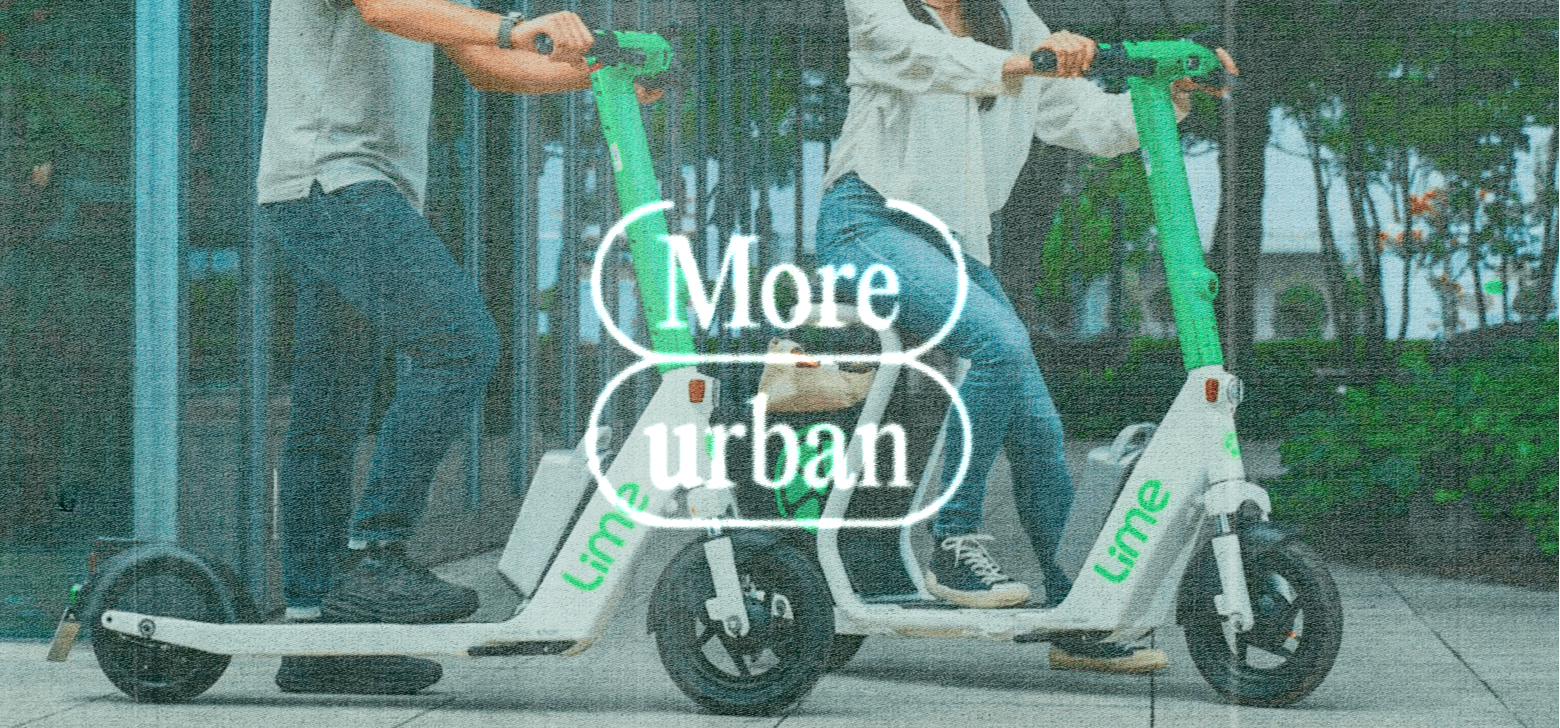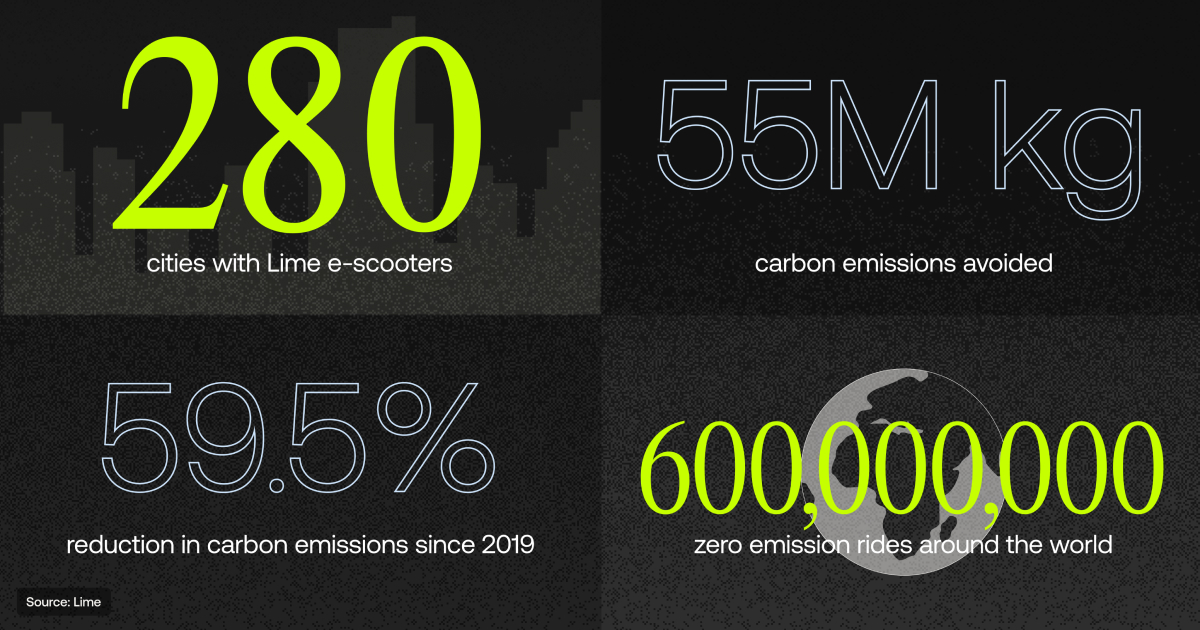The founders of Lime knew our current modes of transportation weren’t good enough for an increasingly urban world. So when they launched Lime, it was with a mission to change how billions of people get around cities every day. By reducing car travel and making shared, affordable, and carbon-free commuting options, Lime is contributing to cleaner air and smaller carbon footprints for city dwellers. Each e-scooter trip saved an average of 26.4 grams of carbon dioxide for each kilometer ridden.
Five years and five continents after its founding, the company achieved a critical milestone: Lime reported $15 million in profits on an adjusted EBITDA basis for 2022. For 2023, Lime grew its business by over 30% and adjusted EBITDA growth of over 500% while cutting absolute emissions by 16.3% over the same period. It was further proof that a strong sustainability agenda is good for business.
A part of how it got there? Designing e-bikes and e-scooters in-house to last longer, be more repairable, and be more efficient. The company cut carbon emission intensity by over 37% while sustaining profitability and Lime recently announced that it cut its carbon emissions by 59.5% since 2019..
Lime believes its success should be a rallying cry for other businesses: Boldly reimagining how we live our lives amid climate change can be profitable. “We achieved positive adjusted EBITDA because of our focus on sustainability,” Savage says, “not despite it.”





